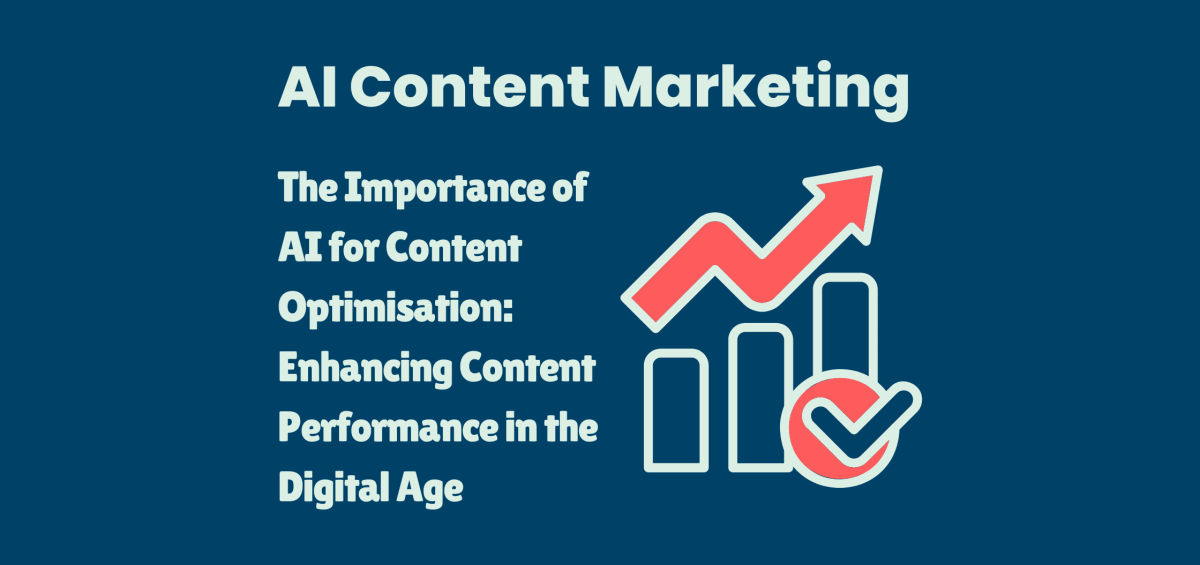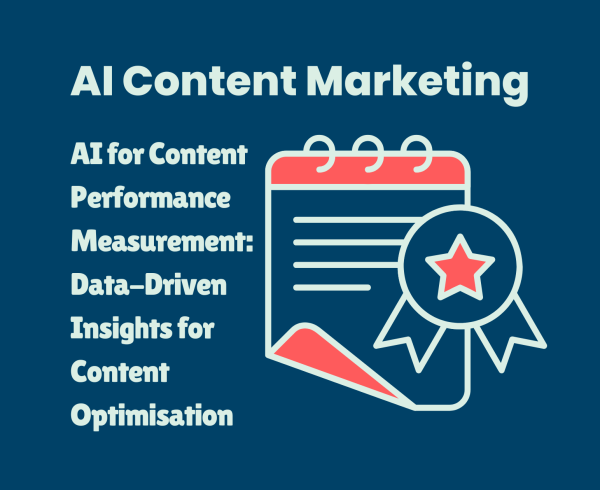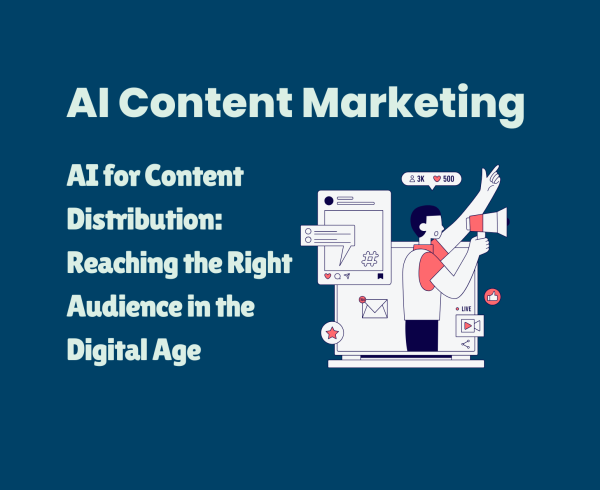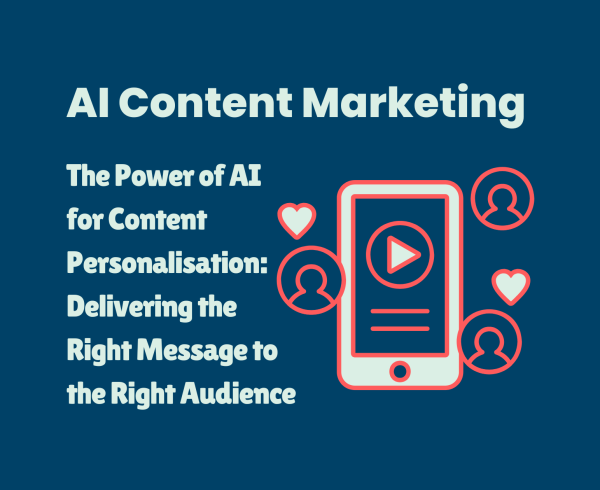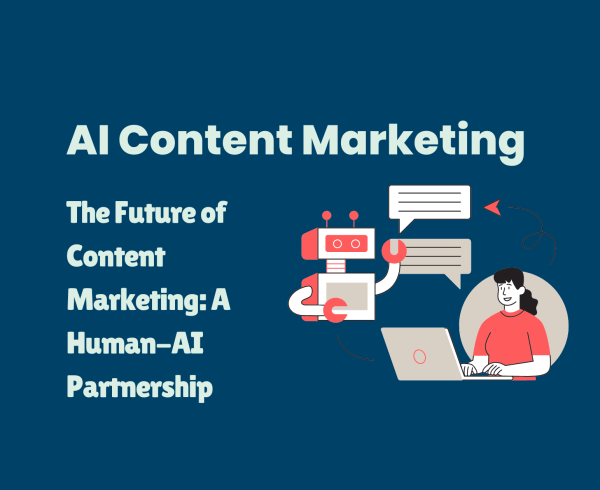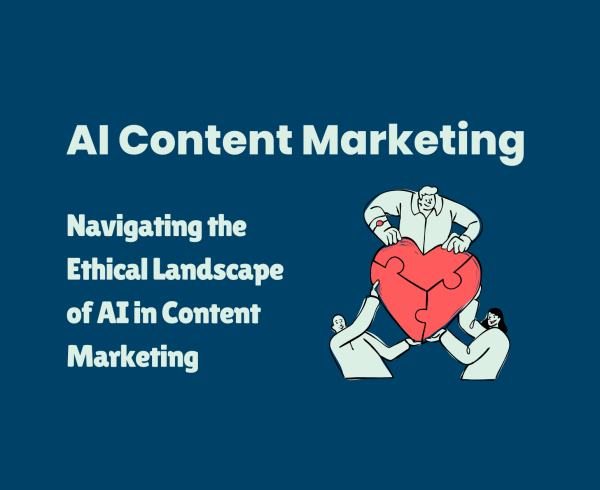In today’s competitive digital landscape, simply creating high-quality content is not enough. To truly succeed, marketers need to optimize their content for various factors, including search engine visibility, social media engagement, and conversion rates. AI offers a powerful toolkit for content optimization, enabling marketers to enhance content performance and achieve their marketing goals. This article explores the importance of AI for content optimization, delves into its capabilities, and provides a roadmap for implementation.
- Understanding the Importance of Content Optimization
Content optimization is the process of improving content to achieve specific marketing goals, such as increasing search engine rankings, driving social media engagement, or generating leads. It involves analyzing various factors, such as keywords, content structure, and user experience, and making data-driven adjustments to enhance content performance.
Benefits of Content Optimization:
- Improved Search Engine Rankings: Optimized content is more likely to rank higher in search engine results pages (SERPs), increasing visibility and organic traffic.
- Increased Social Media Engagement: Optimized content is more likely to be shared and engaged with on social media, expanding reach and brand awareness.
- Higher Conversion Rates: Optimized content guides users toward desired actions, such as making a purchase or filling out a form, resulting in higher conversion rates.
- Enhanced User Experience: Optimized content provides a better user experience, making it easier for users to find the information they need and engage with the content.
- Increased Content ROI: Optimized content delivers better results, maximizing the return on investment (ROI) of content marketing efforts.
- How AI Powers Content Optimization
AI enables marketers to optimize content more effectively by analyzing vast amounts of data and automating optimization processes. AI algorithms can:
- Analyze Content Performance Data: AI analyzes content performance data, such as page views, bounce rates, and conversion rates, to identify areas for improvement.
- Identify Relevant Keywords: AI identifies relevant keywords and phrases that users are searching for, helping marketers optimize content for search engines.
- Analyze Content Structure and Readability: AI analyzes content structure and readability, providing suggestions for improvement to enhance user experience.
- Generate Content Optimization Recommendations: AI generates specific recommendations for content optimization, such as improving headlines, adding images, or optimizing for mobile devices.
- A/B Test Content Variations: AI can automate A/B testing of different content variations, identifying the most effective versions for different audiences and channels.
- AI for Content Optimization for Search Engines (SEO)
AI plays a crucial role in optimizing content for search engines, helping marketers improve their website’s visibility and organic traffic.
- Keyword Research and Analysis: AI identifies relevant keywords and phrases that users are searching for, helping marketers optimize content for those keywords.
- Content Gap Analysis: AI identifies content gaps in the market, helping marketers create content that addresses unmet user needs and ranks well in search results.
- On-Page Optimization: AI analyzes content structure, readability, and other on-page factors, providing suggestions for improvement to enhance SEO performance.
- Technical SEO: AI can identify and address technical SEO issues, such as broken links and slow loading times, that can negatively impact search rankings.
- Link Building: AI can assist with link building by identifying relevant websites and influencers to reach out to for backlinks.
Examples: SEMrush, Ahrefs, and Moz are popular SEO tools that incorporate AI to provide insights and recommendations for content optimization.
- AI for Content Optimization for Social Media
AI helps marketers optimize content for social media, increasing engagement, reach, and brand awareness.
- Social Media Analytics: AI analyzes social media data, such as engagement rates, reach, and sentiment, to identify what’s working and what’s not.
- Content Scheduling and Publishing: AI can automate content scheduling and publishing, ensuring that content is shared at the optimal times for maximum visibility.
- Social Media Advertising: AI can optimize social media advertising campaigns by targeting the right audience, adjusting bids, and personalizing ad creatives.
- Social Listening: AI can monitor social media conversations and identify relevant trends and insights, helping marketers create content that resonates with their audience.
- Influencer Marketing: AI can identify relevant influencers and measure the effectiveness of influencer marketing campaigns.
Examples: Sprout Social, Hootsuite, and Buffer are social media management tools that utilize AI for content optimization.
- AI for Content Optimization for Email Marketing
AI enhances email marketing campaigns by personalizing content, optimizing send times, and improving deliverability.
- Email Personalization: AI personalizes email content, such as subject lines, body copy, and offers, based on user preferences and behavior.
- Send Time Optimization: AI predicts the optimal times to send emails to each user, maximizing open rates and click-through rates.
- Subject Line Optimization: AI analyzes subject line performance and provides suggestions for improvement to increase open rates.
- Email Deliverability: AI can improve email deliverability by identifying and addressing potential issues, such as spam triggers and bounces.
- Email Segmentation: AI segments email lists based on user characteristics and behavior, allowing for targeted content delivery.
Examples: Mailchimp, Constant Contact, and ActiveCampaign are email marketing platforms that leverage AI for content optimization.
- AI for Content Optimization for Paid Advertising
AI optimizes paid advertising campaigns by targeting the right audience, adjusting bids, and personalizing ad creatives.
- Audience Targeting: AI analyzes user data to identify the most relevant audience segments for paid advertising campaigns.
- Bid Optimization: AI adjusts bids in real-time to maximize ad performance and return on ad spend (ROAS).
- Ad Creative Optimization: AI personalizes ad creatives, such as headlines, images, and calls to action, based on user characteristics and behavior.
- Landing Page Optimization: AI analyzes landing page performance and provides suggestions for improvement to increase conversion rates.
- Ad Fraud Detection: AI can detect and prevent ad fraud, protecting advertisers from wasted ad spend.
Examples: Google Ads, Facebook Ads, and LinkedIn Ads all utilize AI for content optimization.
- AI for Content Optimization for Conversion
AI helps marketers optimize content for conversion by analyzing user behavior, personalizing calls to action, and improving user experience.
- Conversion Rate Optimization (CRO): AI analyzes user behavior on websites and landing pages to identify areas for improvement and increase conversion rates.
- Personalized Calls to Action: AI personalizes calls to action based on user characteristics and behavior, increasing the likelihood of conversion.
- User Experience (UX) Optimization: AI analyzes user experience data and provides suggestions for improvement to enhance website usability and engagement.
- Form Optimization: AI optimizes forms by simplifying design, reducing form fields, and personalizing form submissions.
- Chatbots: AI-powered chatbots can engage with users on websites and landing pages, providing support and guiding them toward conversion.
Examples: Optimizely, VWO, and Hotjar are CRO tools that incorporate AI to optimize content for conversion.
- AI for Content Optimization for Accessibility
AI enhances content accessibility by identifying and addressing accessibility issues, ensuring that content is accessible to all users, including those with disabilities.
- Accessibility Audits: AI conducts accessibility audits of websites and content, identifying potential accessibility issues and providing recommendations for improvement.
- Alternative Text Generation: AI generates alternative text descriptions for images, making visual content accessible to users with visual impairments.
- Captioning and Transcription: AI generates captions and transcriptions for audio and video content, making multimedia content accessible to users with auditory impairments.
- Content Formatting: AI optimizes content formatting for accessibility, ensuring that content is easy to read and navigate for users with cognitive and motor impairments.
- Assistive Technology Compatibility: AI ensures that content is compatible with assistive technologies, such as screen readers and voice recognition software.
Examples: accessiBe and UserWay are accessibility solutions that utilize AI to optimize content for accessibility.
- The Future of AI for Content Optimization
The future of AI for content optimization is promising, with advancements in AI technology promising even more sophisticated and impactful optimization capabilities.
- Hyper-personalization: AI will enable even more granular personalization of content optimization, tailoring content to individual needs and preferences in real-time.
- Predictive Optimization: AI will predict content performance and user behavior, enabling proactive optimization and maximizing content ROI.
- Automated Optimization: AI will automate more aspects of content optimization, freeing up marketers to focus on strategic initiatives.
- Multi-Channel Optimization: AI will optimize content across multiple channels and platforms, ensuring a consistent and effective content experience across all touchpoints.
- Case Studies in AI-Powered Content Optimization
Numerous companies are achieving remarkable results with AI-powered content optimization. Here are a few examples:
- HubSpot: HubSpot uses AI to personalize website content, optimize email campaigns, and improve content performance across various channels.
- Adobe: Adobe uses AI to personalize customer experiences, optimize content delivery, and increase engagement with its marketing content.
- Salesforce: Salesforce uses AI to personalize content recommendations, optimize website experiences, and improve lead generation.
Conclusion
AI is transforming content optimization, providing marketers with the tools and insights to enhance content performance and achieve their marketing goals. By leveraging AI’s capabilities, marketers can improve search engine rankings, increase social media engagement, and drive conversions. As AI technology continues to evolve, the future of content optimization is full of promise and potential. Companies that embrace AI and adopt a human-AI collaborative approach to content optimization will be well-positioned to thrive in the future of content marketing.

